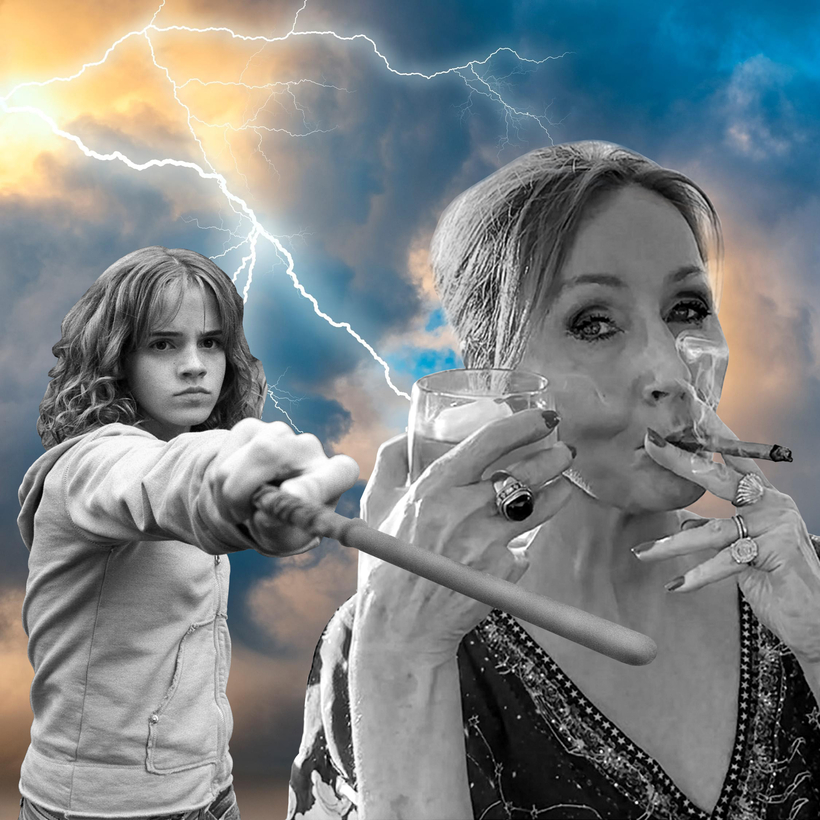It may be alarming at first to wake up to curly-haired Hermione from Harry Potter being zapped, hard, by her creator, J. K. Rowling, as if in a wand-battle in which the young witch has both betrayed her old mentor and underestimated her powers.
“Emma,” Rowling wrote on social media, referring to the Hermione actress Emma Watson, “has so little experience of real life she’s ignorant of how ignorant she is.” Whack. “I lived in poverty while writing the book that made Emma famous.” Whack.

